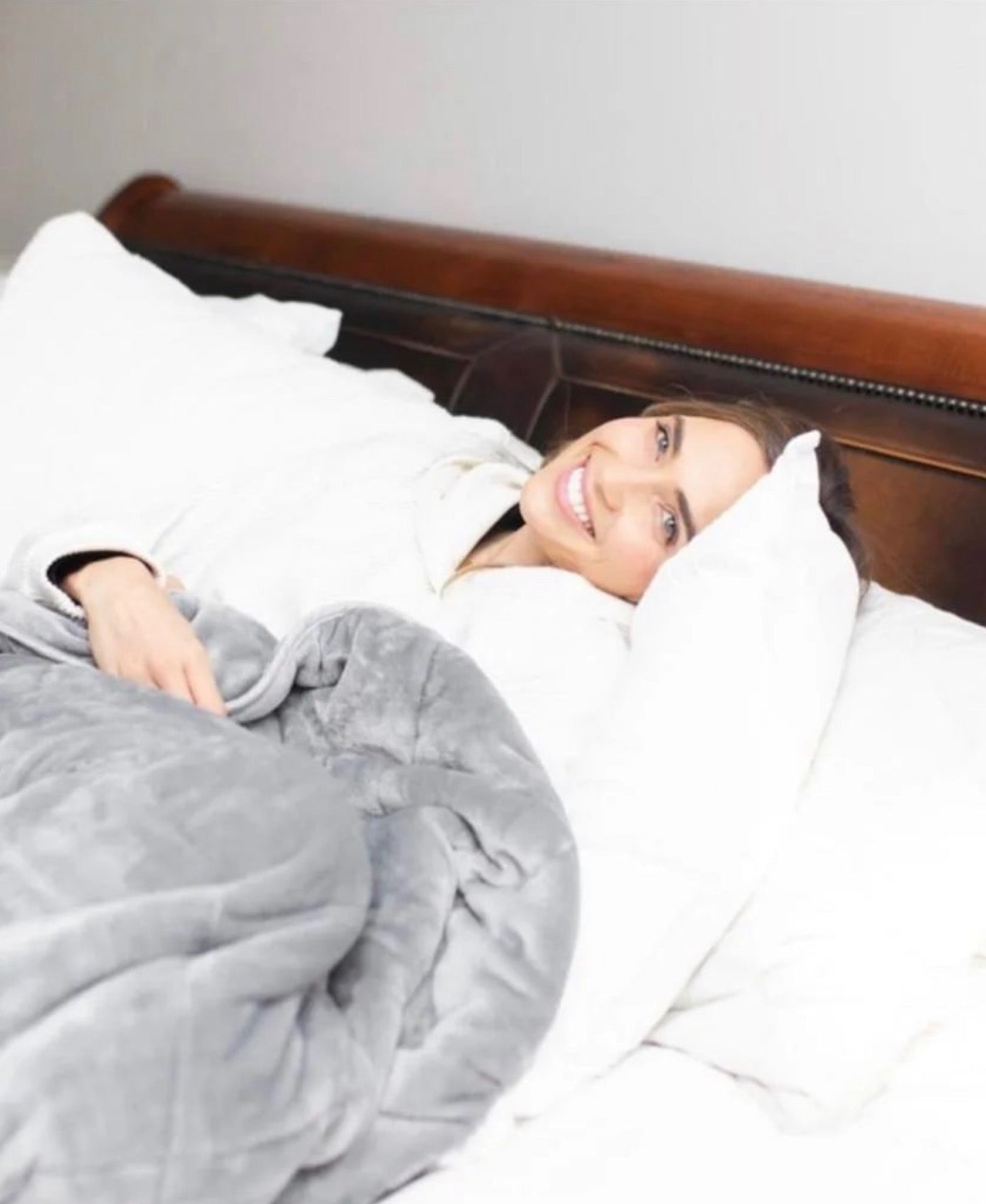
The importance of a good night's sleep cannot be overstated when it comes to our overall well-being. Discover the immense significance of a good night's sleep for overall well-being. From physical health to mental well-being, it affects every aspect of our lives. Uncover practical tips and strategies to optimize your sleep, improve productivity, and enhance your overall quality of life. Sleep better, live better! Here’s our tips on how to get a good night’s sleep.
The Science of Sleep
To first get to our tips for a good night’s sleep list, we need to understand the science behind sleeping. Sleep is a complex process orchestrated by intricate mechanisms within our bodies. It consists of distinct stages, including light sleep, deep sleep, and rapid eye movement (REM) sleep. Each stage serves a unique purpose, facilitating processes such as memory consolidation, hormone regulation, and cellular repair.
Moreover, the sleep-wake cycle, regulated by our internal body clock (circadian rhythm), plays a crucial role in determining when we feel alert and when we naturally feel sleepy. By delving into the science behind sleep, we gain insights into how to optimize our sleep habits and create an environment conducive to a rejuvenating slumber.
Creating a Sleep-Friendly Environment
Healthy sleep habits happen before you get under the covers. Start by optimizing your bedroom ambiance. Keep the room cool, as a slightly lower temperature is often conducive to better sleep. Additionally, make sure your bedroom is dark and quiet, minimizing external noise and light that can disrupt your sleep. Invest in comfortable bedding and pillows that provide adequate support for your body. Maintaining cleanliness and organization in your sleep space can also contribute to a calming atmosphere. By paying attention to these environmental factors, you can create a sanctuary that promotes relaxation and sets the stage for a truly restful slumber. Using a weighted blanket can also help create a better sleep environment.Weighted Blankets Promote better sleep
Weighted blankets have been found to promote better sleep by providing deep pressure stimulation, which activates the body's relaxation response and increases the release of serotonin, a neurotransmitter associated with calming effects and improved sleep quality, according to scientific studies. You’ll finally get better sleep quality.
Establishing a Consistent Sleep Routine
Setting a regular sleep schedule
Setting a regular bedtime and wake-up time is essential for aligning with your body's natural sleep-wake cycle, also known as the circadian rhythm. By adhering to a consistent schedule, you can optimize the timing of your sleep to ensure that you feel well-rested and refreshed upon waking. Over time, this regularity helps regulate your internal clock, making it easier to fall asleep and wake up naturally without relying on alarms or feeling groggy.
The benefits of winding down before bed
Prioritize winding down before bed by engaging in relaxing activities like reading, taking a warm bath, or practicing mindfulness techniques to signal to your body that it's time to sleep.
Avoid stimulating activities (electronic devices, caffeine, etc.)
Avoiding stimulating activities and electronic devices close to bedtime is crucial for promoting better sleep. The blue light emitted by devices like smartphones, tablets, and laptops can interfere with the production of melatonin, a hormone that regulates sleep. By limiting exposure to these devices at least an hour before bed and engaging in relaxing activities instead, such as reading a book or practicing gentle stretches, you can create a conducive environment for winding down and preparing your body for a restful night's sleep.
Developing Healthy Sleep Habits
Developing healthy sleep habits is a key factor in achieving consistent and high-quality sleep. Firstly, regular exercise can contribute to better sleep by reducing stress and anxiety, promoting relaxation, and regulating your body's sleep-wake cycle. Secondly, maintaining a balanced diet plays a significant role in optimizing sleep. Avoiding heavy meals close to bedtime and limiting caffeine and alcohol intake can prevent disruptions to your sleep patterns. Additionally, establishing a relaxing pre-bedtime routine, such as practicing meditation, deep breathing exercises, or gentle stretching, can signal to your body that it's time to unwind and prepare for sleep. Furthermore, creating a comfortable sleep environment by investing in a supportive mattress and using suitable bedding can enhance your sleep quality and overall comfort. Lastly, it is important to limit daytime napping to avoid interfering with your nighttime sleep and to maintain a consistent sleep schedule. By adopting these healthy sleep habits, you can promote a restful and rejuvenating night's sleep.Technology and Sleep
Technology can have both positive and negative effects on sleep. On the one hand, the use of electronic devices, such as smartphones, tablets, and laptops, before bedtime can disrupt sleep due to the blue light they emit, which suppresses the production of melatonin, a hormone that regulates sleep. However, on the other hand, certain technologies can aid in promoting better sleep, such as the use of sleep-tracking apps and devices that monitor sleep patterns and provide insights for improving sleep quality.
Additionally, weighted blankets have gained popularity in recent years for their potential to enhance sleep. These blankets apply deep pressure stimulation, which has been shown to increase serotonin levels and promote a sense of calm and relaxation, potentially improving sleep. Scientific studies suggest that the gentle pressure from weighted blankets may stimulate the production of oxytocin, a hormone associated with feelings of comfort and well-being, contributing to better sleep and reduced anxiety.
As technology continues to evolve, it is important to be mindful of its impact on sleep and to leverage its potential benefits while being aware of its potential drawbacks, finding a balance that supports healthy sleep habits.
Better sleep quality is close
In conclusion, achieving a good night's sleep is crucial for our overall well-being and quality of life. By understanding the science of sleep, creating a sleep-friendly environment, establishing a consistent sleep routine, and developing healthy sleep habits, we can greatly improve our sleep quality and reap the benefits of restful slumber. It's important to be mindful of the impact of technology on our sleep, finding a balance that harnesses its advantages while minimizing its disruptive effects.
Remember, sleep is not a luxury but a necessity for our physical, mental, and emotional well-being. So, let's prioritize sleep, implement the strategies shared in this post, and embark on a journey toward better sleep and a brighter tomorrow. Sweet dreams!
Looking to enhance your sleep? Try Thera’s Weighted Blanket to help you get a good night’s rest. The Therahoodie is a wearable weighted blanket to help you take the same calming comfort around the house and on the go.








